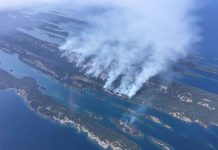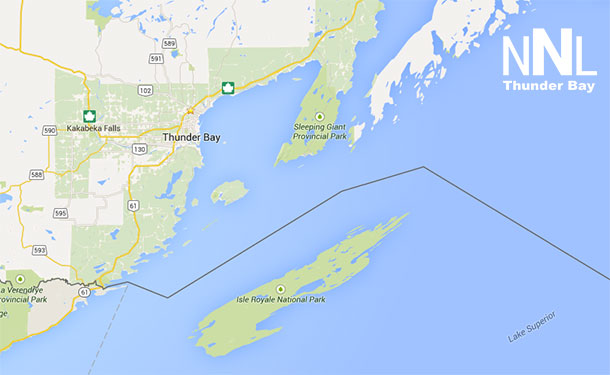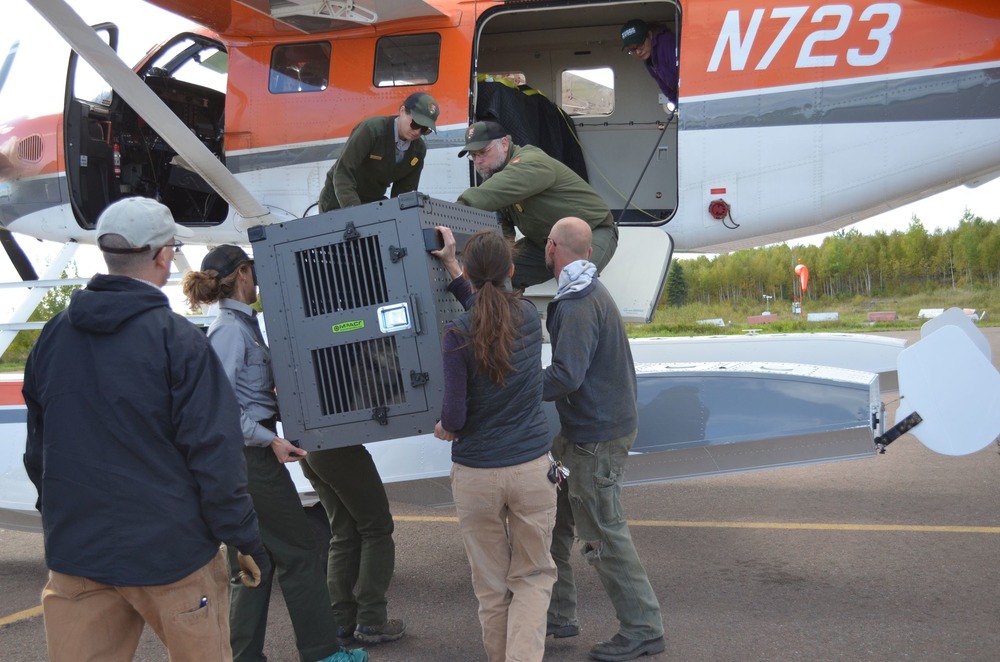
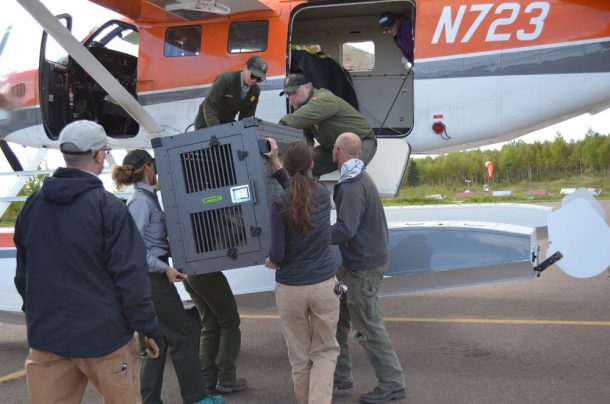
Project staff load a crated wolf into a seaplane for a flight to the island
HOUGHTON, MICHIGAN- This week, the National Park Service (NPS) began the translocation of wolves to Isle Royale National Park as part of a multi-year effort to increase the number of apex predators into the park’s ecosystem.
On Tuesday, September 25, four wolves were successfully captured from different pack territories on the Grand Portage Indian Reservation in northeastern Minnesota. Young wolves that do not meet the age threshold of the project protocol are released where they were captured.
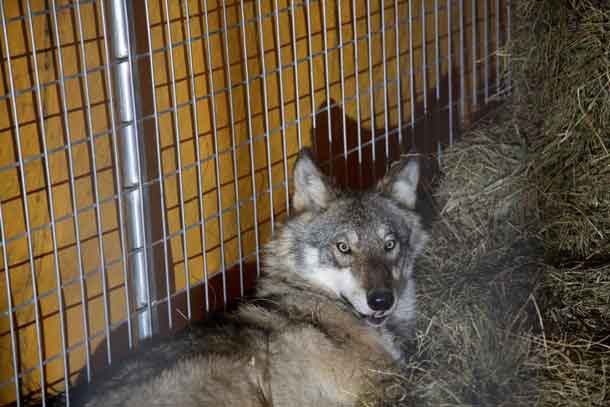
The male wolf in the holding facility before transport.
The two adult gray wolves, a 4-year old female and a 5-year old male, were taken to Isle Royale and successfully released. As per agreed upon protocols between the NPS and partner organizations, both wolves received medical examinations by wildlife veterinarians from the NPS, U.S. Fish and Wildlife Service, and the University of Minnesota, prior to being cleared for transport.
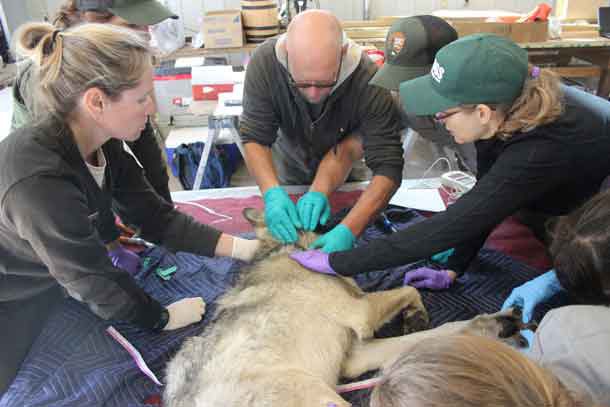
USFWS Wildlife Veterinarian Samantha Gibbs (left), Grand Portage Wildlife Biologist Seth Moore, USGS Research Wildlife Biologist Shannon Barber-Meyer, and others work together to fit the first male wolf with a radio collar.
On Thursday, September 27, another female wolf was captured and on initial inspection by on-site wildlife biologists, deemed fit for translocation. Per protocol, the wolf was sedated and transported to the holding facility for further medical examination. In the holding facility, its condition deteriorated and it succumbed despite the best efforts of the attending veterinarians. The wolf was transported to the University of Minnesota Veterinary Diagnostic Lab for necropsy and diagnostic evaluation today.
Per the implementation plan, the team and partners immediately reviewed protocols. Adjustments were made to the protocols including the length of time a captured wolf is kept in the field prior to transport, and the sedation procedures used to lower stress during transportation.
The NPS and partners associated with this effort take every capture very seriously and put the safety and health of the wolves as a top priority. The relocation effort is continuing over the upcoming weeks.



